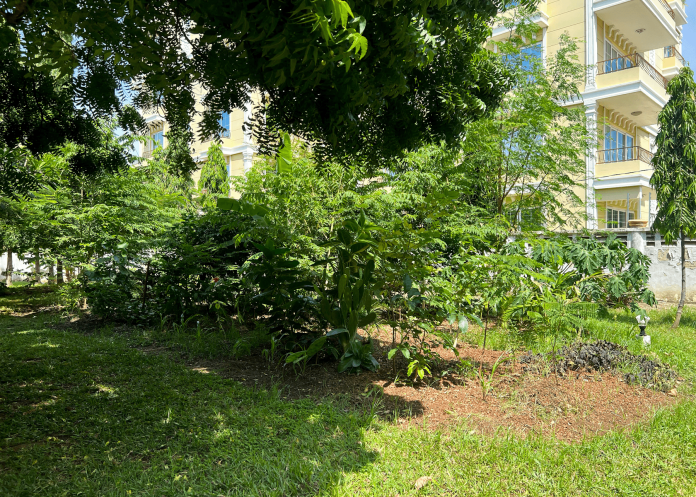In a major effort to fight climate change and promote biodiversity, Aga Khan University has planted its first microforest in Pakistan.
This initiative is part of the GROW program by the Aga Khan Foundation, which aims to create small, dense, and biodiverse forests that grow quickly in both urban and rural areas.
Located on the AKU campus, this microforest includes over 25 types of native plants like fig trees, banana trees, and hibiscus flowers.
These plants are densely packed within a 100-square-meter area. The project not only beautifies the campus but also acts as a carbon sink, absorbing large amounts of CO2 and supporting the university’s sustainability goals.
The microforest was planted with the help of community volunteers and students, showcasing AKU’s dedication to environmental care and community involvement. By making this project a part of its wider climate resilience strategy, AKU hopes to inspire similar efforts across Pakistan.
The microforest will serve as a living classroom for environmental education and research, emphasizing the importance of biodiversity for ecosystem health and resilience.
This project is a part of a bigger mission by the Aga Khan Foundation, which has planted nearly 400 microforests around the world. These microforests benefit both people and the planet by promoting sustainable living and tackling the challenges posed by climate change.
AKU’s microforest initiative is expected to set an example for other institutions and communities, encouraging them to adopt similar practices to enhance their local environments.
This project highlights the importance of collaborative efforts in addressing global environmental issues and the critical role that small-scale, local actions can play in creating a sustainable future.


